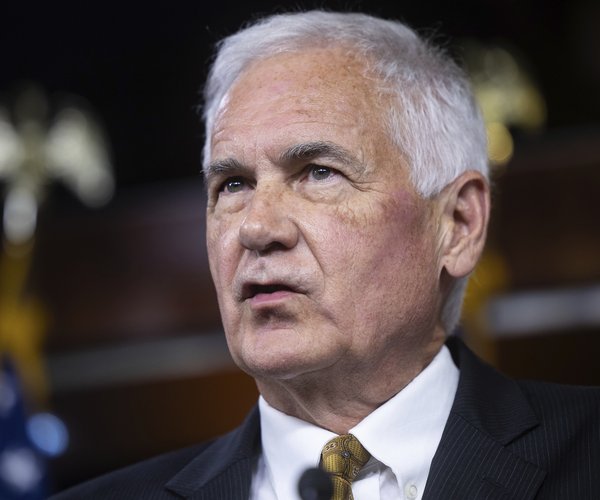Tax evaders.
Call them what they really are — moochers, parasites.
They deliberately — not by oversight or error — do no report taxable income.
It is an illegal activity.
And just like shoplifters whose illicit activities drive up the price of goods for law-abiding citizens, so do those who evade taxes.
Of course, situational ethnics — the self-deluding practice of justifying essentially robbing from your neighbors and the rest of the community — come into play.
And while we may have our finger on the proverbial moral compass so it doesn’t point to ourselves for failings, the real problem are the enablers we send to Sacramento and Washington, D.C..
Nobody likes taxes
That’s a given.
But here’s a dirty little inconvenient truth — government needs money to operate.
And we’re not talking just the bureaucracy.
We’re talking putting fighter jets in the air, paving and maintaining interstate freeways, paying public safety salaries, keeping national parks maintained, locking up murderers, health care for those that can’t afford it and a long lost of things that aren’t free per se.
The biggest disconnect are those that think “disruptivr technology” somehow changes a taxable transaction.
The 1099-K debate is ground zero for chicanery sold by politicians that are red as well as blue in order to sell delusional fairy tales and essentially buy votes.
The issue over 1099-K reporting was born when the budget busting $1.9 trillion American Rescue Plan Act of 2021 was passed.
It might surprise you that there is a projected $1 trillion gap between what the IRS believes Americans owe in taxes and what they actually pay. Most of this is not tied into paychecks and such that have paper trails.
And while there are big fish out there bending rules to the point they break, there are significantly more small fish doing the same thing.
The 1099-K reporting rule for revenue of $600 or more received via revenue transactions on e-commerce platforms was implemented to cover part of the $1.9 trillion bill Congress created.
It was projected to raise $8.4 billion over a decade from those individuals using e-commerce platforms to rent their homes and market homemade items.
They are basically escaping paying any taxes that everyone else pays.
The squawking has been on how those that don’t owe money will get caught up in the IRS dragnet.
Too bad everyone riding their high horse on this one has nicely ignored the standard 1099 requirement for independent contractors that has been around for decades.
It has been up to 1099 independent contractors for years to keep track of costs versus earnings.
If you will recall, Uber and Lyft “contractors” screamed bloody murder a few years back when their income was found to be taxable just like that of their old-fashioned kissing cousins known as independent taxi drivers.
Income is income, whether it is extra or earned by freelancing.
If you are running a business — which is exactly what someone who is renting their home via Airbnb and uses e-commerce platforms and not credit cards or checks to handle payment is doing — you are generating taxable transactions.
That’s $300 a night you get for running a hotel in a residential neighborhood or using your garage as a mini factory to turn out handmade trinkets for $50 a pop constitutes a business.
And just like a business, reportable income is taxable.
That does not mean the entre $300 or the entire $50 is taxable.
Just like a business, the IRS allows you to cover expenses. What it doesn’t allow you to do is to get off Scot-free without paying taxes on the portion of your revenue that is betterer known as profit.
It is what those that are part of the 1099 economy have to do. They need to track expenses to determine reportable income. It is what every business does. Just because someone uses technology that the world labels as “disruptive’ doesn’t change the basic fact one is operating a business that produces taxable revenue.
Taxable revenue is how government pays for the freeways that trucks roll down so commerce works including whatever business you are conducting whether it is out of your home or out of a storefront.
The IRS last week delayed requiring those that process transactions to send 1099-K tax forms to platform sellers or the IRS. That means 2022 sales won’t be subject to IRS scrutiny.
And while it is clear there are those in the gig economy who are paying taxes they owe on such transactions, based on the IRS’ own estimated $800 million in annually owed taxes will go unpaid in 2023 and lost forever.
Making this all the richer — Democrat and Republican politicians that promoted the 1099-K reporting as a way force tax compliance without creating new taxes to fund the $1.9 trillion COVID relief spending package — are working to increase the threshold.
Prior to Congress changing the rules, the reporting threshold was $20,000 if someone had more than 200 transactions.
Rep. Carol Miller, a Republican from West Virginia, has gone on record supporting the IRS decision as has almost everyone else in Congress.
But she also asks a question that no one else seems to be asking in DC these days: She wonders whether the administration has the legal authority to delay the 1099-K requirement given it is explicitly spelled out in the American Recovery Act language that it has to be in place to collect taxes for 2022.
The short answer, of course, is that unlike working stiffs the tech disruptors and their darling minions have friends in high places in both Sacramento and Washington.







